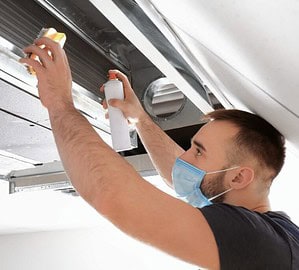There are a lot of perks to having a medical procedure performed abroad: better prices, better specialist doctors, the chance to travel wrapped up in a big expenditure, etc. But it takes a lot of planning. You have to get there and back, you have to get through the paperwork, and even more so you need to assure yourself that what you’re doing is the best thing for you.

Are you wondering where to start? Plenty of people do. They, and you, should read our guide to getting your medical procedure performed abroad to stay safe.
Research, research, research!
Getting your medical procedures done abroad is a risky business. The language barrier alone is something that a patient would typically like to avoid, but given that some of our best doctors are immigrants, it isn’t the worst thing.
To keep yourself feeling safe, look into your procedure. Read case studies, statistics, and anything else you can think of. If you have the option, look into your surgeons. Check their qualifications, where they studied, what specialty they’re trained in, their history with the treatment, etc.
Don’t rely on reviews. Every surgery is different because every person is different, and one patient having a good experience with a doctor will not mean you will have a good experience.
Choose where you’re going wisely
That goes for the potential country you’re getting your surgery in, as well. Look up statistics on good and bad outcomes and compare them with your own country’s as well as other countries. There are different rates of quality to consider when taking in things like education level, price, etc. After all, you get what you pay for, and when you’re paying for your health, quality is an important aspect.
However, some places, either due to the culture or medical policies, offer superior work to the US. In Brazil, for example, the medical industry is known for their superior cosmetic surgery surgeons due to its insurance coverage of such procedures, which the US lacks, allowing for more practice. Meanwhile, a more forthcoming culture has allowed Thailand to lead the world in gender reassignment surgery.
Flying increases the risk of blood clots, especially on flights lasting longer than 4 hours. It would be better to wait a week to allow the chances of you developing a clot to decrease. However, taking an alternative route home might appeal to you if you’re looking to get home quickly. It’s not the highest of priorities, but it should be on there when considering your choices for getting a surgery abroad. Look out for chances to take a train, boat, or drive to your destination that doesn’t have an effect on your health.
Nail down your insurance
Travel insurance is also something that should be on your mind whatever trip you are taking. A lot of common problems while travelling can be solved with insurance. If you lose your bags, have your cash stolen or your trip is cancelled.
But did you know that you can get travel insurance that can help treat you if you have a pre-existing medical condition. Some providers like Staysure offer an insurance policy that covers all emergency treatment relating to pre-existing conditions. Not all providers will offer the same coverages. So, it’s worth doing some research, as Covid may not be covered by some policies.
If you are safe to travel according to the FCDO, you can travel knowing that any emergency bills due to covid will be covered and so will your holiday, should it be cancelled due to Covid.
It’ll give you one less thing to worry about while you recover from your surgery.



